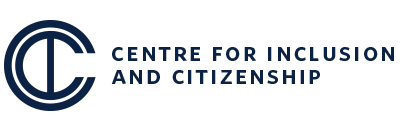This report marks the eighth year the Centre has been going and, despite struggles to find core funding to keep the doors open, we continue to grow and develop as Canada’s only university based research Centre with an exclusive focus on social policy and issues concerned with the full inclusion and citizenship of people with intellectual and developmental disabilities.
Our research programme has expanded significantly over recent years with major Social Sciences and Humanities Research Council (SSHRC) and Canadian Institutes of Health Research (CIHR) and other funding awards to support a range of projects on critical is- sues such as youth transitions, healthy sexuality and employment. We have developed excellent partnerships with other departments at UBC and elsewhere ranging from Education, Rehabilitation Medicine, Nursing, Theatre and Law. Our community partnerships have also continued to grow with strong links to Inclusion BC, Canadian Association for Community Living, The Family Support Institute of BC and numerous local community living organizations. A recent initiative was the I am Voting initiative on which we partnered with self advocates and community living organizations to encourage and support voting by people with intellectual and developmental disabilities. We continue to be grateful for these alliances and all our supporters who help to keep our work focused on prioities for self advocates and families.
One of the more significant areas of development over the past couple of years has been a drama- tic increase in our international presence and the growing recognition of the CIC as a major contributor to the global movement towards full citizenship. Indeed, the I Am voting initiative noted above grew out of a partnership with Inclusion Melbourne in Australia who have been leading work in this area for a number of years and inspired us to undertake a new focus on political and civic engagement. Much of our increased international presence is a product of our 2015 international conference Claiming Full Citizenship held in Vancouver and attracting over 500 participants from 11 countries. Since the conference, follow up events have been held in New Zealand and Australia and we are currently working with partners in the UK on a major follow up conference
in Glasgow, Scotland for 2019. This is part of an exciting new global initiative stemming from the conference called Citizen Network (http://www.citizen-network.org) which we are pleased to be the Canadian coordinating body for. We are also a founding member of the International Association for the Scientific Study of Intellectual and Developmental Disabilities (IASSIDD) Academy on Education, Teaching and Research. This will enhance our ability to offer workshops by internationally recognized experts in the field and to offer our support to developing nations. Over the past 2 years I have had the opportunity to speak and work in numerous countries and provinces; Australia, China, Israel, Newfoundland and Labrador, Ontario and Saskatchewan to name a few. British Columbia and the CIC remain a key source for information and inspiration around the world and the CIC is proud to help spread the word as well as bring innovation and ideas back home to improve our own work.
A further exciting development has been the expansion of our presence at UBC-Okanagan led by CIC Co- Director Rachelle Hole. She discusses this more fully in her report. I hope you will take the time to read about the many and varied initiatives of the CIC detailed in this report. More importantly let us know if you want to get involved or have ideas about how the CIC can better fulfill our mission and support the movement toward full citizenship and inclusion for people with intellectual and developmental disabilities here in BC and around the world.
As always there are many people to thank for making the CIC the success it is. Our volunteer advisory board members and Chair Dan Collins, our partner acade- mics, agencies and departments and of course our funders. I would like to thank the Schools of Social Work at UBC Vancouver and Okanagan for continuing to sup- port the work of the CIC. I would also like to thank Cindy Chapman our coordinator whose dedication and energy keep us going though often choppy waters and my Co- Director Rachelle Hole who has taken the lead on many of our major research projects and made the CIC a force in the Okanagan. It has been and honour and a privilege to serve as director of the CIC and I look forward to an exciting future building a world where everyone enjoys full inclusion and citizenship.
